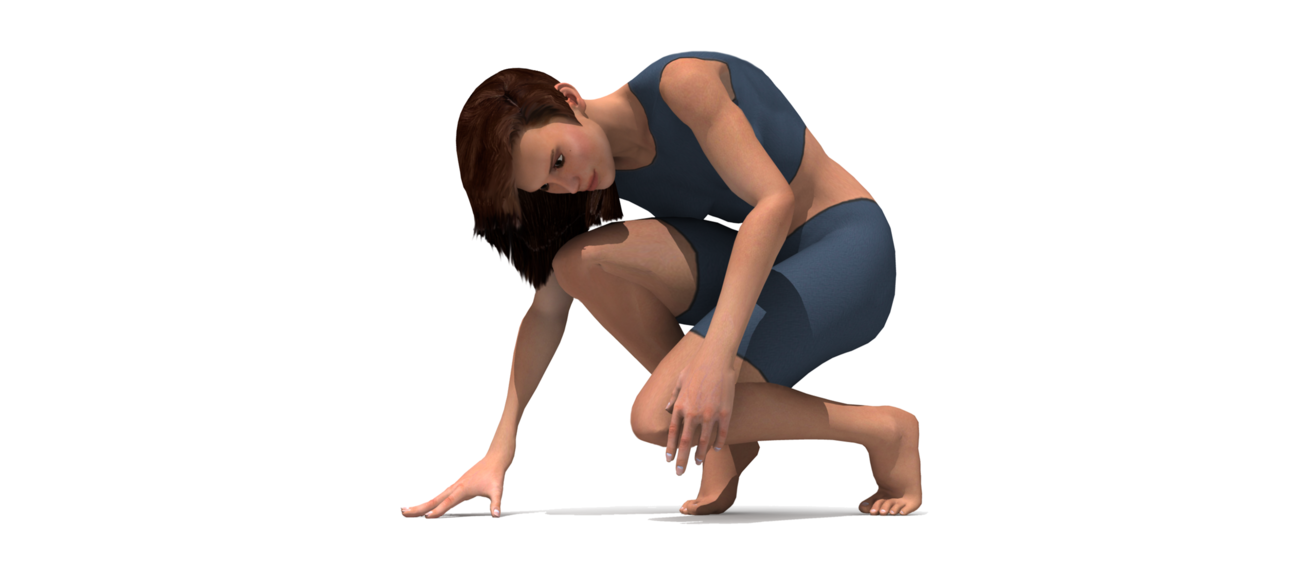
Breadcrumb
Call for Papers
DHM 2022 provides an international forum at which to report the latest innovations, summarize the state of the art in the field, and exchange ideas, results, and visions in all fields of digital human modeling research and applications.
Researchers and practitioners are invited to submit an abstract and indicate whether they plan to present a full paper, a short paper, or a creative work:
- Full paper (6-9 pages): A standard academic research paper that describes high-quality, unpublished, original research work and results. Papers will be subject to double-blind peer review.
- Short paper (2 pages): A short paper that describes work in progress or is more descriptive than scientific on topics of interest to the digital human modeling community.
- Creative work: Work may include animations or artistic work related to digital humans, including human behavior and interactions in gaming applications.
Call for Papers
Topics
Topics of interest include, but are not limited to, the following:
- Ergonomics
- Anthropometry and 3D human body modeling
- Human functional data (e.g., joint maximum strength, joint range of motion)
- Modeling for subjective responses (e.g., ingress/egress, seat comfort)
- Mental/cognitive models and integrated models
- Older, disabled, and other special populations
- Verification and validation of DHMs
- Model standards and protocols
- Biomechanics
- Musculoskeletal human models
- Motion capture and reconstruction
- Posture and motion simulation
- Body part modeling (spine, pelvis, head, hand, foot)
- Biomedicine
- Digital twin in healthcare
- In-silico medicine
- Modeling of organs and organ systems
- Neurological modeling
- Neurofunctional integration
- Wearables
- DHM – wearable integration
- Wearable simulation
- Exoskeleton simulation
- Exoskeleton integration
- Virtual Reality and DHM
- Applications and software demonstration
- Virtual humans' appearance
- Statistical body modeling methods
- Serious game applications
- AI in VR
- Modeling and Simulation
- Medical devices
- Health systems
- Orthopaedics
- Human Systems Engineering
- Model-based engineering
- Model-based systems engineering
- Human Physical Modeling
- Modeling of responses to shock
- Modeling of responses to impact
- Modeling of responses to vibration
- DHM in safety applications
- Human-Robot (Cobot) coordination and simulation
Abstract Requirements
Authors from academia, industry, and research institutes are invited to submit an abstract in the DHM2022 Conference Management System (EasyChair) by March 7, 2022.
Abstracts should include no author names, author affiliations, figures/tables, or references.
Please structure the abstract using these headings:
- Title (preliminary)
- Keywords (3-5)
- Topic(s)
- Abstract (300-350 words)
- Submission type (full paper, short paper, creative work)
For authors who plan to submit a full paper, the abstract should give an outline of the full paper, indicating the paper’s merits and relevance to the scope of the DHM2022 Symposium, and a brief account of the results.
Full Paper Requirements
Authors of accepted abstracts may submit a full paper 6-9 pages in length. The required language is English. All submissions will be made in the DHM2022 Conference Management System (EasyChair).
All authors must use the template for preparing their full papers and strictly follow the given instructions. The full paper must be submitted in the DHM2022 Conference Management System (EasyChair) by May 20, 2022. Templates and further instructions will be available on the DHM2022 website.
All submitted full papers will be subject to peer review by the Scientific Committee. To increase quality and minimize the risk of bias, the review process is double blinded. To allow this, no names or affiliations of authors should be included in the full paper manuscript to be reviewed. Author names and affiliations will be added when submitting the final (camera-ready) version of the paper.
Review comments on full papers will be sent back to the corresponding author by June 10, 2022.
The modified final (camera-ready) version of the paper should be re-submitted by July 1, 2022.
For a paper to be presented at the symposium and published in the proceedings, at least one unique author per paper needs to be registered by July 1, 2022.
Short Paper Requirements
Authors of accepted abstracts may submit a short paper of no more than two pages. The required language is English. All submissions will be made in the DHM2022 Conference Management System (EasyChair).
All authors must use the template for preparing their short papers and strictly follow the given instructions. The short paper must be submitted in the DHM2022 Conference Management System (EasyChair) by May 20, 2022. Templates and further instructions will be available on the DHM2022 website.
All submitted short papers will be subject to peer review by the Scientific Committee. To increase quality and minimize the risk of bias, the review process is double blinded. To allow this, no names or affiliations of authors should be included in the short paper manuscript to be reviewed. Author names and affiliations will be added when submitting the final (camera-ready) version of the paper.
For a paper to be presented at the symposium and published in the proceedings, at least one unique author per paper needs to be registered by July 1, 2022.
Creative Work Requirements
If you would like to present creative work at DHM 2022, please submit an abstract by March 7, 2022. Work may include animations or artistic work related to digital humans, including human behavior and interactions in gaming applications. If you have questions, please email iti-event@uiowa.edu.